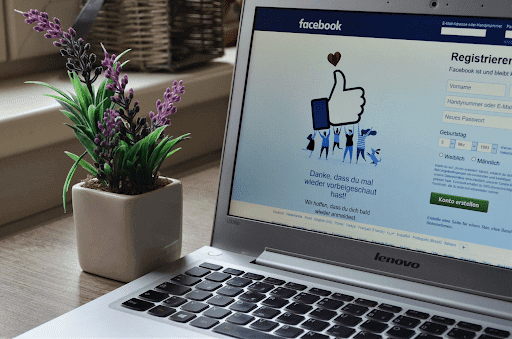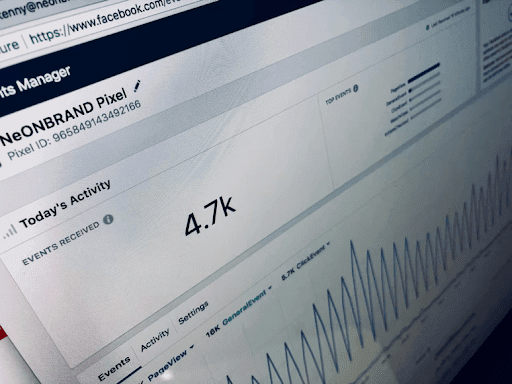
The Fundamental Elements of a Facebook Ads Proposal Template
Whether you’re pitching to a small business, a marketing agency, or a multi-million dollar enterprise, the success of your Facebook ad proposal lies in how well it aligns your services with the client’s goals.
Your proposal should ideally communicate your USPs and highlight the results you can achieve. Analyze your prospect’s requirements to create a tailor-made proposal for them that includes all the necessary details they need to make a decision.
Note: Sign up for Bonsai free and access this Facebook marketing proposal template, plus a host of customizable templates for proposals, contracts, invoicing, and more.

Here’s a clear structure you’ll need to craft the perfect Facebook ad proposal:
Cover letter
The cover page is your chance to impress a potential client and nudge them to read the rest of your Facebook marketing proposal template. If the cover letter fails to intrigue prospects, it’s highly unlikely they’ll take the time to read further into your proposal.
Start by introducing yourself and include some of your skills and experience so far. Aim to create a proposal that’s both engaging and appealing whilst also explaining why you’re the best digital marketer for the role.
Executive summary
It can be a good idea to include an executive summary in your proposal. This gives an overview of the project and proposal and allows prospects to get a gist of the document without reading it cover to cover.
Summarize the key points of your proposal, and provide background info on the project and popular social media platforms you’re harnessing experience from. It’s a chance to set the scene for your proposal and highlight the main considerations before diving in deeper.
Plan of action
One of the most crucial elements of any Facebook ads proposal template is defining the project requirements. This segment first spells out the client’s goals—giving you the chance to show how well you’ve understood their needs and mission on social. This will make the client more confident in trusting you with your proposed Facebook advertising campaigns.
Once you’ve set expectations, present your plan of action and give prospective clients a peek into what you can do to produce the expected results.
Here’s what you can include in your Facebook marketing proposal template:
- Brief competitor market research
- An overview of buyer personas for targeted outreach
- An overview of your strategy for managing Facebook ad campaigns
- Data analytics tools and weekly reports to report and further inform campaigns with
Include what’s necessary for your prospect’s requirements and add any info that helps you stand out. This section of your proposal will essentially answer questions relating to the project’s scope of work.
Timelines
A Facebook advertising proposal is incomplete without a timeline of expected milestones and results.
Your Facebook ad proposal should outline realistic timeframes for the project to maintain steady progress and avoid delays. You can divide the project into different milestones across the project’s duration. Alternatively, you can also assign a deadline for every deliverable to track your progress.
For example, you can specify that you’ll prepare and present the ad campaign strategy ten days after the project’s commencement. You can then mention that any edits–such as finalizing, creating, and A/B testing the ad–will take four more days.
This is a key section when it comes to setting expectations, so make sure to provide deadlines that you know you’ll be able to hit. It’s tempting to go above and beyond to impress, but this just isn’t feasible when it comes to meeting the goals you set or fitting all of this into your proposal!
Previous work
Showcase your expertise as a digital marketer and in social media specifically by including some insights from your existing or past client projects.
Presenting a case study of similar projects you’ve completed in the past will build a stronger case for you. Tell your prospects about the results you’ve achieved in the past. It’ll prove your ability to understand the project goals and exceed the expectations. This can add a lot more weight to your Facebook marketing proposal template.
Pick a couple of case studies of previous projects from the same industry or niche and briefly explain your contributions.
You can highlight:
- The client’s objectives and existing ad management setup
- The package of services you offered to address their pain points
- The results you achieved through the defined plan of action
Take this section as an opportunity to reinforce how capable you are of taking on such a project.

Payment terms
The last section of your Facebook ads proposal template will include a detailed insight into your pricing plans. List down all the marketing services you’ll offer the prospective client alongside what you’ll charge for each.
That’s why it’s best to have a budgeting discussion with the prospect to gauge their monetary expectations before sending out the proposal. This helps both you and the potential client reach a feasible payment schedule, and also ensures both parties are on the same page when it comes to a fee ballpark.
You can also use this section to disclose any payment terms and conditions you’d like the client to be aware of. These include things like payment options–such as credit cards and cheques–and payment details, such as what happens in the case of late payments.
Bonsai top tip: Use a social media invoice template to speed this process up. Or if you’re a Bonsai Cash user you can receive payments that much quicker and easier.
Closing statement
This is the final section of your proposal, and it’s your chance to reel prospects in. You’ve spent the entirety of your Facebook marketing proposal convincing potential clients that you’re their best bet, now it’s time to tell them what’s next.
The first step following the proposal is acceptance–then you can go about drafting a more official social media marketing contract. Inform prospects on how to take these next steps–be it via email, call, or virtual signature. Lean into this section with ease, as if it’s the only logical next step for your client.
How to Write a Facebook Advertising Proposal
Since your prospect may not understand the technicalities of the ad management workflow and marketing strategies, drafting a Facebook marketing proposal template can be challenging. Explaining all the processes without confusing the reader is a task in itself–never mind creating the proposal too.
So, let’s understand what it takes to write the perfect Facebook marketing proposal.
Know their ideal customer
Knowing your client’s target audience is the best place to start drafting a plan for your Facebook proposal. Do this by understanding their offerings, and who they’re trying to appeal to. The prospective client might include this in the request for proposals, but it’s also something you can research independently.
Demonstrate your understanding of the prospect’s ideal customer in your Facebook marketing plan. Give them a rundown of the techniques and strategies you plan to use to tap into this market and maximize results. This highlights that your approaches are targeted and well-thought-through–not a shot in the dark hoping to land on target.
Assure your prospects about your knowledge of the right audience to create the most accurate and appealing ads to attract them.

Highlight why you stand out
While data shows the tangible results that you can achieve, numbers should not be the only focus of your Facebook ad proposal.
Highlight the qualities that set you apart from the rest—whether it’s your prompt and transparent communication or extra services for ad management. Speak about your adaptability and versatility to handle the prospect’s requirements, no matter how complicated they get.
Also, draw attention to your expertise in what’s a very competitive industry. Mention how you stay up-to-date with social media tips and trends to reassure prospective clients that you’re committed to maintaining and improving your social media skills and knowledge.
Define the goals you’ll achieve
Every good Facebook marketing plan template is goal-oriented. Make each section centric to the prospect’s overall objectives and present your ad management services as an ideal solution for their pain points.
Back each goal with a reliable metric that will ultimately help multiply the client’s sales. Here’s a helpful list of goals you can factor in while drafting your proposal:
- Increase sign-ups by X%
- Drive Y% more traffic to the website
- Surveys to measure brand awareness
- Increase brand engagement by Z%
- Increase Facebook followers by X%
- Generate Y% more marketing qualified leads to aid the sales team
Creating a Facebook Marketing Proposal is Simple with Bonsai
Perhaps, drafting this proposal seems like a lot of work. No worries. Let Bonsai take care of it with a fully customizable Facebook ad proposal template.
Create a tailor-made proposal for every prospect and never miss the mark in a few easy steps:
- Sign up for free to Bonsai
- Find the perfect proposal template you need
- Customize it as per your client’s preferences
In a few simple clicks, you’ve completed your proposal with Bonsai. Then, send it off to impress clients and win those new projects that you deserve.

Facebook Ads Proposal FAQs
How do I write a Facebook ad proposal?
Writing a proposal for Facebook ad management will involve research and planning to understand the client’s expectations and goals. Here’s how you can create the perfect Facebook ad proposal:
- Understand the prospect’s goals and target audience and customize the proposal to reinforce this understanding
- Incorporate results from past projects to showcase the results you can achieve
- Double down on the qualities that set you apart from the other ad managers
Bonsai top tip: Drafting a Facebook marketing proposal is easy and efficient with Bonsai’s extensive selection of templates. Sign up for free and get started today.
When should I draft a Facebook marketing proposal?
A Facebook marketing proposal is the starting point for any new project. It’s a detailed pitch informing prospective clients about your experience and expertise in the FB ad management domain. The proposal also elaborates the services you’ll offer to achieve the client’s goals.
It’s one of the first formal documents to change hands when you embark on a new client relationship and project.





